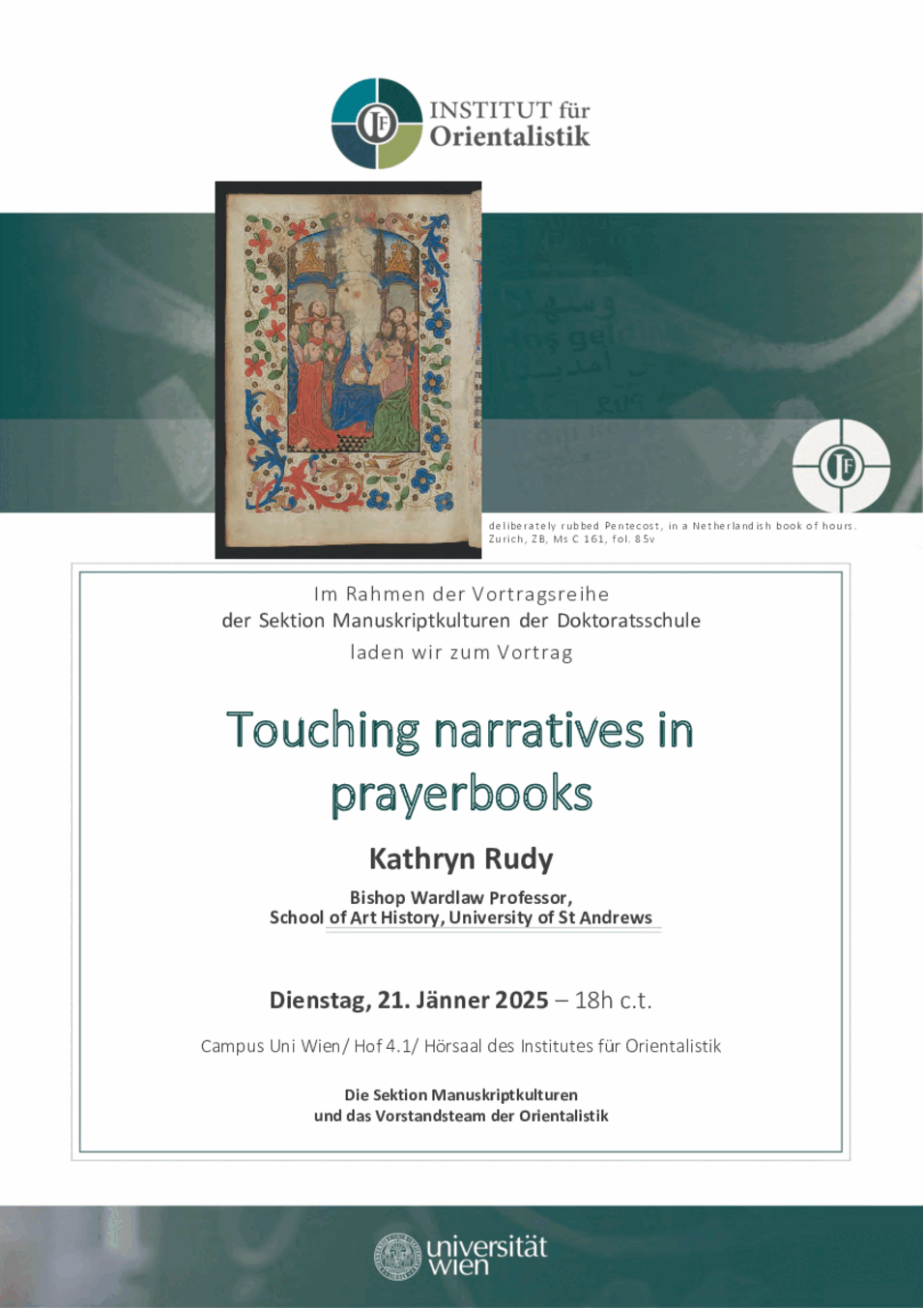Medieval manuscripts rarely survive without some damage. Deliberate damage has often been labeled "iconoclasm," or, more oven, when such examples are reproduced in scholarly books, the damage is simply ignored. However, the sheer number of examples of lay devotional manuscripts that have been deliberately touched demands an explanation. Many images have been visibly damaged through what I call "action-touching," in which the user enacts the narrative with a finger. This is distinct from venerative touching, where the finger (lips, hand) touch down on the surface of the image once. With action-touching, the user drags the finger across the surface in order to trace the action of the narrative. Doing so amplified small images with the users' gestures. In this illustrated talk, I will pursue this hypothesis with examples from books of hours, propose ways of distinguishing the emotions behind deliberate image-touching, and consider channels through which such behaviors were transmitted.
Touching narratives in prayerbooks
09.01.2025

